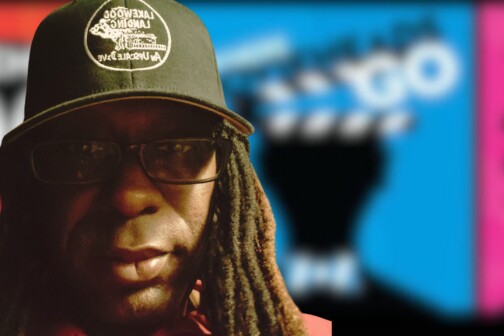WHAT IS IT about the First Amendment that turns some college presidents to Jell-O? Why is the freedom that best defines us so often upheld least by those we would expect to defend that freedom most? There’s something scary going on out there.
A few months ago, U.N. Ambassador Jeane Kirkpatrick was heckled off the stage at the University of California, Berkeley, where she had been invited to speak. Next, administrators at Smith College, while not exactly telling Kirkpatrick to stay home after inviting the U.N. ambassador to be commencement speaker, told her that conditions at the college might be very unpleasant because of student and faculty intolerence for opinions that diverged from their own. Then there’s the story of Jack Greenberg, director counsel of the Legal Defense Fund. Although he has won more civil rights cases than anyone, Greenberg had the effrontery to be born white, which was sufficient reason for a group of black law students at Stanford University to prevent him from lecturing there.
Maybe freedom of expression is something we as a nation have simply out-grown. Maybe now we should let overindulged students with a scorn for history selectively censor those spokesmen and viewpoints to which we should be exposed. Maybe the idea of a university as a place where opinions can be openly and freely discussed has come and gone. Maybe it’s best simply to drown out any opinion we find the slightest bit disagreeable.
Maybe not.
Instead, maybe a university administration should confront those handfuls of students whose deluxe consciences enable them to decide what’s best for us to hear. Maybe Duane Acker, president of Kansas State University, had the right idea. When Saudi Arabian Oil Minister Sheikh Yama-ni spoke there, a small group of students, most of whom were Iranians, shouted him down. Acker first asked for quiet and co-operation from the students; he didn’t get it. Finally, he had the hall cleared and then allowed everyone except the hecklers back in. Acker later said that he felt an obligation to use whatever powers he had to guarantee the right of an invited speaker to be heard. How naive and straightforward the administrators of Berkeley and Smith must think Acker to be. How Midwestern. Acker didn’t plead with the students; he had the stomach to do what he thought was right. Isn’t that behavior a little weird for college administrators, who are more at home with a glass of sherry at four o’clock and capitulation to students at any time?
In the aftermath of these incidents, the American Council on Education did the expected. The members issued a statement using language ever so deftly to blur and obscure: “We know the line between legitimate dissent and illegitimate disruption is often difficult to draw and that the rights of peaceful protest must also be respected.” Did they say that the line nevertheless must be drawn? Nope. Did they say why the line must be drawn? Nope. In fact, as you read on, you come to understand that hecklers have an ally of sorts at the American Council on Education. The statement went forward -to use that word loosely: “To lessen the tension that is sometimes created on the campuses when persons come to receive honors, we encourage democracy and dialogue among representatives of major campus constituencies, especially when choosing commencement speakers, as they have been the focus for much tension in the past.” How brave.
So now, in addition to students deciding who will be allowed to speak on campuses throughout the year, the American Council on Education is suggesting that they also select commencement speakers.
The New Republic was made uneasy by these incidents, and the magazine’s editors made the critical point: “It is the indifference of our system of public discussion to the content of what is discussed that makes the system free. Anything goes, says our sublime amendment.” Except, evidently, in universities, where content is becoming a determining factor in whether a speaker is allowed to speak. That is, however, a form of rationing that destroys the essence of our right.
The late Supreme Court Justice William O. Douglas said he had very little trouble issuing judgments on cases having to do with the First Amendment because he took the First Amendment to mean what it said. Clearly, Duane Acker of Kansas State University also believes what it said. But what of the others who would prefer that the First Amendment tie freedom of expression to content? Don’t they represent the clear and present danger?
Related Articles

News
Methodist Charlton Names New CEO and Steward Offloads Five More Hospitals for $1.1 Billion
Plus Texas Health Mansfield's new president and CEO, TimelyCare recognized by EY, and more.
By Bridget Reis

Hockey
What We Saw, What It Felt Like: Stars-Golden Knights, Game 1
Deja vu all over again. Kind of.
By Sean Shapiro and David Castillo

Movies
A Rollicking DIFF Preview With James Faust
With more than 140 films to talk about, of course this podcast started with talk about cats and bad backs and Texas Tech.
By Matt Goodman


